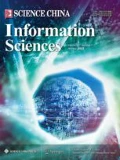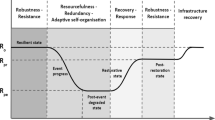Abstract
This paper addresses state estimation issues of large-scale systems with measurements subject to deception attacks, where the communication topology among sub-estimators is the same as the physical coupling structure of the subsystems. In consideration of the limited channel bandwidth, a novel adaptive event-triggered scheme is proposed for governing the data transmission among sub-estimators. With the help of Lyapunov analysis approaches, sufficient conditions are derived to ensure the input-to-state stability of the dynamics of estimation errors. Meanwhile, the bound of the estimation errors is obtained in the mean-square sense. The desired estimator parameters are presented in an analytical form dependent on the solution of a set of matrix inequalities. The developed scheme is related to the local information of the subsystems and thus satisfies the requirement of scalability. Finally, a simulation example of power systems is given to reveal the usefulness and effectiveness of the developed design scheme.
Similar content being viewed by others
References
Lin C, Wu G, Obaidat M S, et al. Clustering and splitting charging algorithms for large scaled wireless rechargeable sensor networks. J Syst Software, 2016, 113: 381–394
Ding D, Han Q L, Ge X, et al. Secure state estimation and control of cyber-physical systems: a survey. IEEE Trans Syst Man Cybern Syst, 2021, 51: 176–190
Ding D, Wang Z, Lam J, et al. Finite-horizon \({{\cal H}_\infty }\) control for discrete time-varying systems with randomly occurring nonlinearities and fading measurements. IEEE Trans Automat Contr, 2015, 60: 2488–2493
Li W, Jia Y, Du J. State estimation for stochastic complex networks with switching topology. IEEE Trans Automat Contr, 2017, 62: 6377–6384
Haddad W, Chellaboina V, Nersesov S. Large-scale nonlinear dynamical systems: a vector dissipative systems approach. In: Proceedings of the 42nd IEEE Conference on Decision and Control, Maui, 2003. 5603–5608
Dashkovskiy S N, Rüffer B S, Wirth F R. Small gain theorems for large scale systems and construction of ISS Lyapunov functions. SIAM J Control Optim, 2010, 48: 4089–4118
Roshany-Yamchi S, Cychowski M, Negenborn R R, et al. Kalman filter-based distributed predictive control of large-scale multi-rate systems: application to power networks. IEEE Trans Contr Syst Technol, 2013, 21: 27–39
Zhang L, Zhang H, Ding X. Non-fragile H∞ filtering for large-scale power systems with sensor networks. IET Gener Transm Distrib, 2017, 11: 968–977
Xu B, Shi Z, Sun F, et al. Barrier Lyapunov function based learning control of hypersonic flight vehicle with AOA constraint and actuator faults. IEEE Trans Cybern, 2019, 49: 1047–1057
Xu B, Wang D, Zhang Y, et al. DOB-based neural control of flexible hypersonic flight vehicle considering wind effects. IEEE Trans Ind Electron, 2017, 64: 8676–8685
Han F, Wei G, Ding D, et al. Local condition based consensus filtering with stochastic nonlinearities and multiple missing measurements. IEEE Trans Automat Contr, 2017, 62: 4784–4790
Zhang D, Shi P, Wang Q G. Energy-efficient distributed control of large-scale systems: a switched system approach. Int J Robust Nonlin Control, 2016, 26: 3101–3117
Millán P, Orihuela L, Jurado I. Distributed agent-based control and estimation over unreliable networks for a class of nonlinear large-scale systems. Int J Control, 2019, 92: 664–676
van Horssen E P, Weiland S. Synthesis of distributed robust H∞ controllers for interconnected discrete time systems. IEEE Trans Control Netw Syst, 2016, 3: 286–295
Zou Y, Lam J, Niu Y, et al. Constrained predictive control synthesis for quantized systems with Markovian data loss. Automatica, 2015, 55: 217–225
Zhu W, Zhou Q H, Wang D D, et al. Fully distributed consensus of second-order multi-agent systems using adaptive event-based control. Sci China Inf Sci, 2018, 61: 129201
Ding R, Hu W F, Yang Y H. Rotating consensus control of double-integrator multi-agent systems with event-based communication. Sci China Inf Sci, 2020, 63: 150203
Mao J, Ding D, Wei G, et al. Networked recursive filtering for time-delayed nonlinear stochastic systems with uniform quantisation under round-robin protocol. Int J Syst Sci, 2019, 50: 871–884
Zhang J, Peng C. Networked H∞ filtering under a weighted TOD protocol. Automatica, 2019, 107: 333–341
Ding D, Wang Z, Han Q L. A set-membership approach to event-triggered filtering for general nonlinear systems over sensor networks. IEEE Trans Automat Contr, 2020, 65: 1792–1799
Chen W, Ding D, Dong H, et al. Finite-horizon H∞ bipartite consensus control of cooperation-competition multiagent systems with round-robin protocols. IEEE Trans Cybern, 2021, 51: 3699–3709
Ding D, Wang Z, Shen B, et al. Event-triggered consensus control for discrete-time stochastic multi-agent systems: the input-to-state stability in probability. Automatica, 2015, 62: 284–291
Peng C, Tian E, Zhang J, et al. Decentralized event-triggering communication scheme for large-scale systems under network environments. Inf Sci, 2017, 380: 132–144
Gu Z, Yue D, Tian E. On designing of an adaptive event-triggered communication scheme for nonlinear networked interconnected control systems. Inf Sci, 2018, 422: 257–270
Peng C, Yang M, Zhang J, et al. Network-based H∞ control for T-S fuzzy systems with an adaptive event-triggered communication scheme. Fuzzy Sets Syst, 2017, 329: 61–76
Xie X, Li S, Xu B. Adaptive event-triggered H∞ fuzzy filtering for interval type-2 T-S fuzzy-model-based networked control systems with asynchronously and imperfectly matched membership functions. J Franklin Inst, 2019, 356: 11760–11791
Guo Y, Miao F, Zhang L C, et al. CATH: an effective method for detecting denial-of-service attacks in software defined networks. Sci China Inf Sci, 2019, 62: 032106
Yuan Q, Wei P W, Jia K T, et al. Analysis of blockchain protocol against static adversarial miners corrupted by long delay attackers. Sci China Inf Sci, 2020, 63: 130104
Chen W, Ding D, Dong H, et al. Distributed resilient filtering for power systems subject to denial-of-service attacks. IEEE Trans Syst Man Cybern Syst, 2019, 49: 1688–1697
Song J, Ding D, Liu H, et al. Non-fragile distributed state estimation over sensor networks subject to DoS attacks: the almost sure stability. Int J Syst Sci, 2020, 51: 1119–1132
Chen B, Ho D W C, Hu G, et al. Secure fusion estimation for bandwidth constrained cyber-physical systems under replay attacks. IEEE Trans Cybern, 2018, 48: 1862–1876
Du D, Li X, Li W, et al. ADMM-based distributed state estimation of smart grid under data deception and denial of service attacks. IEEE Trans Syst Man Cybern Syst, 2019, 49: 1698–1711
Amin S, Litrico X, Sastry S, et al. Cyber security of water SCADA systems-Part I: analysis and experimentation of stealthy deception attacks. IEEE Trans Contr Syst Technol, 2013, 21: 1963–1970
Wen S, Yu X, Zeng Z, et al. Event-triggering load frequency control for multiarea power systems with communication delays. IEEE Trans Ind Electron, 2016, 63: 1308–1317
Riverso S, Ferrari-Trecate G. Hycon2 benchmark: power network system. 2012. ArXiv:1207.2000
Acknowledgements
This work was supported in part by National Natural Science Foundation of China (Grant Nos. 61973219, 61933007, 61873058) and Natural Science Foundation of Shanghai (Grant No. 18ZR1427000).
Author information
Authors and Affiliations
Corresponding author
Rights and permissions
About this article
Cite this article
Xiao, H., Ding, D., Dong, H. et al. Adaptive event-triggered state estimation for large-scale systems subject to deception attacks. Sci. China Inf. Sci. 65, 122207 (2022). https://doi.org/10.1007/s11432-020-3142-5
Received:
Revised:
Accepted:
Published:
DOI: https://doi.org/10.1007/s11432-020-3142-5




